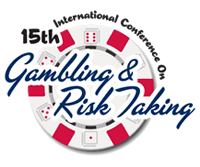Presentation Type
Event
Location
Caesars Palace, Las Vegas Pompeian II
Start Date
30-5-2013 10:30 AM
End Date
30-5-2013 12:00 PM
Disciplines
Constitutional Law | Economics | Gaming and Casino Operations Management | Gaming Law | Law
Abstract
The Professional and Amateur Sports Protection Act (“PASPA”) is a patent monopoly because the statute (A) imitates the Crown’s practice of allocating markets by patent; (B) functions like a patent issued under the United States Patent Code; and (C) imposes monopoly-like costs upon the public. The Constitution’s Patent Clause is a brilliant public financing scheme and unique in that it is the only grant of power to Congress in the Constitution that begins with a specific prescription of proper legislative purpose. Congress cannot grant just any person a patent monopoly for any purpose. Rather, Congress can grant a patent monopoly only to an inventor in exchange for the public receiving a device or method that it did not have before. In other words, under the Patent Clause, Congress can bet a time-limited patent monopoly on a creator’s new invention, but Congress simply cannot hand out a patent monopoly if there is no new invention to bet on. PASPA’s patent monopoly does not encourage innovation by serving as a bet on a new sport or new sports financing device or method. PASPA is designed to do just the opposite: discourage pre-existing methods of wagering beyond Nevada on pre-existing sports. Thus, PASPA is a congressional gift of a patent monopoly and, consequently, the statute violates the Patent Clause. However, whether PASPA is unconstitutional or not, growth of legal sports trading beyond Nevada will and should be commercially driven by economics and technology—not politically driven by disputes over federalism—and only will occur when some of the sports leagues that currently oppose growth change their position and embrace growth.
Included in
Constitutional Law Commons, Economics Commons, Gaming and Casino Operations Management Commons, Gaming Law Commons
Session 3-2-B: PASPA: An Unconstitutional Patent
Caesars Palace, Las Vegas Pompeian II
The Professional and Amateur Sports Protection Act (“PASPA”) is a patent monopoly because the statute (A) imitates the Crown’s practice of allocating markets by patent; (B) functions like a patent issued under the United States Patent Code; and (C) imposes monopoly-like costs upon the public. The Constitution’s Patent Clause is a brilliant public financing scheme and unique in that it is the only grant of power to Congress in the Constitution that begins with a specific prescription of proper legislative purpose. Congress cannot grant just any person a patent monopoly for any purpose. Rather, Congress can grant a patent monopoly only to an inventor in exchange for the public receiving a device or method that it did not have before. In other words, under the Patent Clause, Congress can bet a time-limited patent monopoly on a creator’s new invention, but Congress simply cannot hand out a patent monopoly if there is no new invention to bet on. PASPA’s patent monopoly does not encourage innovation by serving as a bet on a new sport or new sports financing device or method. PASPA is designed to do just the opposite: discourage pre-existing methods of wagering beyond Nevada on pre-existing sports. Thus, PASPA is a congressional gift of a patent monopoly and, consequently, the statute violates the Patent Clause. However, whether PASPA is unconstitutional or not, growth of legal sports trading beyond Nevada will and should be commercially driven by economics and technology—not politically driven by disputes over federalism—and only will occur when some of the sports leagues that currently oppose growth change their position and embrace growth.




Comments
Moderator: Ngai Pindell
Session 3-2-B Gaming Law and Compliance: Critical Issues in a Changing Landscape
File: 20 PowerPoint slides
Attached file: Paper